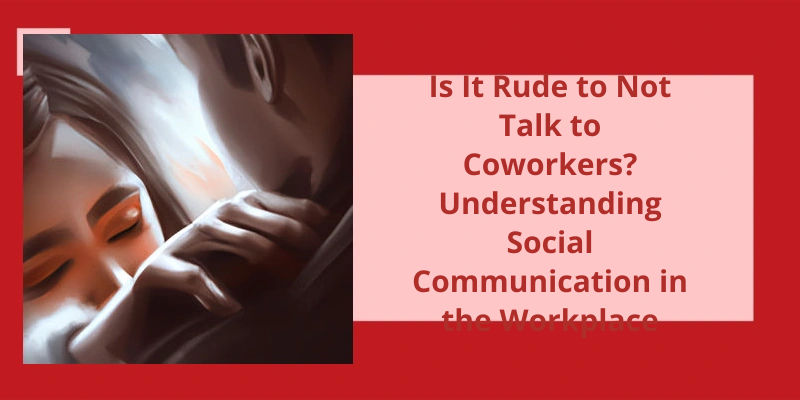However, the reasons behind why people choose to divulge their secrets to you can vary greatly depending on the situation and the individual. It’s important to understand the dynamics at play and to handle these conversations with care and confidentiality. In this comprehensive guide, we will explore the psychology behind why individuals choose to share their secrets, how to create a safe and trustworthy environment for them to open up, and how to navigate these conversations with empathy and understanding. We will also delve into the potential impact of being the recipient of others' secrets, including the emotional burdens that may arise and the ethical considerations involved. By gaining a deeper understanding of the reasons behind why people tell you their secrets and learning how to navigate these situations effectively, you’ll be equipped to handle these interactions with compassion and integrity.
Why Do People Feel Comfortable Telling Me Their Secrets?
Many people find themselves wondering, “Why do people feel comfortable telling me their secrets?”. It can be quite perplexing to constantly have others confide in you with their deepest, darkest secrets. However, there’s a simple explanation for this phenomenon. When someone divulges their secrets to you, it signifies a level of trust that they’ve developed in your relationship. By sharing their secrets, they’re implicitly expressing their confidence in your ability to handle the information without judgment or betrayal.
Perhaps you often come across strangers who’re eager to burst out their innermost secrets to someone they’ve just met. In such situations, it’s likely that these individuals are desperately seeking a non-judgmental ear – someone who they can confide in without fear of being criticized or ostracized. They may feel that you possess the qualities of a trustworthy listener, someone who’ll keep their secrets safe and respect their privacy.
It could be because they perceive you as trustworthy. Trustworthiness is a trait that people naturally seek when seeking someone to confide in. They may have observed your consistent ability to keep confidential information under wraps or have simply picked up on cues that indicate your reliability as a confidant. People are more likely to share their secrets with individuals they believe will guard their private information and not use it against them.
Another reason people may reveal their secrets to you is that you’ve demonstrated empathy and understanding in previous interactions. Your ability to listen without judgment or criticism makes you a safe haven for those who’re burdened by their secrets. By creating a non-threatening atmosphere, you provide others with the space and security they need to open up and share their personal experiences.
By displaying qualities such as trustworthiness, empathy, and the ability to maintain neutrality, you create an environment where individuals feel safe enough to share their deepest secrets and personal experiences. Embrace this unique role and continue to foster open, trusting relationships with those around you.
However, the act of sharing secrets goes beyond just disclosure. It’s often seen as a way to build trust, foster deeper connections, and create a sense of intimacy in our relationships. Secrets, whether big or small, have the power to shape our interactions and reveal aspects of ourselves that we may not readily share. In this article, we delve into the nature of secrets, their impact on relationships, and the intricacies of sharing them.
Is Sharing Secrets Intimate?
Is sharing secrets intimate? “When people confide in us, we take it as an act of intimacy that can bring us closer,” he adds. Secrets are a universal human phenomenon. Almost everyone has something to hide (though, of course, not all secrets are of the deep, dark variety).
Sharing secrets with someone else, whether it’s a best friend, family member, or therapist, creates a bond between the two individuals. It’s like opening a window into the depths of our souls, revealing our vulnerabilities and fears. This act of vulnerability is what brings people closer together. When someone chooses to reveal their secrets to us, it shows that they trust us and value our judgment.
Source: Exposing the hidden world of secrets
Now that you’ve taken the necessary steps to ensure your friends understand the importance of keeping your secret confidential, it’s time to explore additional strategies to prevent the exposure of your secret.
How Do I Stop Someone From Exposing My Secret?
If you find yourself in a situation where you’re worried about someone exposing your secret, there are a few steps you can take to minimize that risk. First and foremost, it’s important to evaluate the person or people you’ve confided in. Consider whether they’ve a history of keeping secrets or if they tend to be more loose-lipped. This will help you gauge the level of risk they pose.
Once you’ve assessed the individuals involved, it’s crucial to clearly communicate to them that the information you’ve shared is indeed a secret. Sometimes, people may not fully comprehend the sensitivity or confidentiality of certain topics unless explicitly told so. By emphasizing the importance of keeping this information private, you increase the likelihood that they’ll respect your wishes.
Furthermore, it’s essential to educate your friends about the potential consequences of exposing your secret. If they don’t fully grasp the gravity of the situation, they may overlook the significance of keeping it to themselves. Explain the potential negative impact it could have on your personal or professional life, relationships, or even your mental well-being. Helping them understand the seriousness can serve as a powerful deterrent from divulging your secret.
In addition to these proactive measures, it’s essential to monitor your own behavior and words to ensure you arent inadvertently revealing your secret. Sometimes, unintentional slips can occur, especially when discussing related topics or if you’re feeling overwhelmed or emotional. By being mindful of what you say and taking care not to give away any hints or clues, you minimize the risk of others exposing your secret.
If despite your efforts, you still find your secret at risk of being revealed, it may be time to reassess your trust in these individuals. Ultimately, you’ve control over who you confide in and share personal information with. If someone repeatedly shows a lack of discretion or breaches your confidentiality, it may be necessary to distance yourself from them or seek support from others who’ve proven to be more trustworthy.
Remember, it’s important to prioritize your own well-being and protect your own interests. While it can be disappointing to discover that someone can’t be trusted with your secrets, it’s essential to take steps to safeguard yourself and your personal information.
How to Confront Someone Who Has Exposed Your Secret
Confronting someone who’s exposed your secret can be a difficult and sensitive situation. It’s important to approach the conversation with patience, honesty, and empathy.
Firstly, try to gather your emotions and organize your thoughts before initiating the conversation. Approach the person in a private and comfortable setting, where both of you can speak openly.
When confronting the individual, express your feelings calmly and assertively. Be clear about how their actions have affected you and why you’re upset or hurt. It’s essential to communicate your boundaries and emphasize that your trust has been broken.
Listen to the other person’s perspective as well. While it may not excuse their behavior, understanding their motivations or reasons behind their actions can provide some clarity. However, it’s important to maintain your own emotional well-being and set boundaries if the conversation becomes too overwhelming.
Consider discussing possible solutions or actions to address the situation. This can involve discussing boundaries, expectations of privacy, and the importance of trust. Ultimately, it’s up to you whether you want to rebuild the relationship or establish new boundaries.
Remember that everyone makes mistakes, and it’s crucial to focus on open communication, understanding, and personal growth. Seek support from trusted friends, family, or professionals if you feel overwhelmed during this process.
Some secrets are simply too difficult to keep buried within, weighing heavily on one’s conscience and causing feelings of inauthenticity. Research suggests that the act of withholding information can have a negative impact on one’s emotional well-being. Moreover, the nature of the secret itself plays a significant role in how it feels to keep it hidden. Let’s delve deeper into the reasons behind why people struggle to keep secrets.
Why People Can’t Keep Secrets?
If the secret is something that goes against your personal values or ethics, it can create inner conflict and guilt. Keeping such a secret can be incredibly challenging, as it goes against the very core of who you are. The weight of this internal struggle may eventually become too heavy to bear, leading you to unintentionally reveal the secret to someone else.
Additionally, the fear of being judged or rejected by others can also contribute to the inability to keep secrets. Humans are social creatures who crave acceptance and validation from others. When we’ve a secret that we believe may be met with disapproval or criticism, the anxiety and stress of potentially facing judgment from others can become overwhelming. It becomes difficult to resist the urge to confide in someone who may offer support and understanding.
Furthermore, secrets often have an emotional impact on individuals. They can be associated with guilt, shame, or fear, which can take a toll on ones mental and emotional well-being. Keeping these intense emotions bottled up can be detrimental to ones mental health, and the need to share and unload becomes too powerful to resist. Sharing a secret can provide a sense of relief and catharsis, allowing individuals to release their pent-up emotions and find solace in the understanding and empathy of others.
In some cases, people may also have a strong desire to gain attention or feel more important by being the one who knows and shares confidential information. This can stem from deep-seated insecurities or a need for validation and acceptance. By revealing secrets, individuals may inadvertently seek validation and affirmation of their worth from others, as they believe that possessing and sharing sensitive information will make them more valuable or significant in social circles.
Finally, the innate human curiosity and thirst for gossip can also play a role in the inability to keep secrets. We’re naturally intrigued by the unknown and crave excitement in our lives. When we’re entrusted with someone elses secret, it becomes a tantalizing piece of information that begs to be shared.
The Psychological Effects of Keeping Secrets and the Potential Harm It Can Cause
- The increased stress and anxiety that can result from keeping a secret
- Feelings of guilt and shame that may arise from hiding important information
- Strained relationships with others due to the lack of openness and trust
- Negative impacts on mental health, such as depression or feelings of isolation
- Difficulty in maintaining authenticity and genuine connections with others
- The potential for the secret to resurface and cause even more harm in the future
- The erosion of self-esteem and self-worth as a result of living in secrecy
- The potential for the secret to negatively affect one’s physical health, such as increased stress-related ailments
- The missed opportunities for personal growth and learning that may result from avoiding vulnerability
- The long-term damage to personal relationships and the potential for those secrets to cause irreparable harm
It’s important to find healthy ways to manage the urge to share a secret. One effective strategy to resist the temptation is by keeping yourself occupied with other activities and diverting your thoughts away from the secret. By focusing on different tasks and interests, you’ll be less likely to dwell on the secret and feel the need to disclose it. Additionally, take some time to reflect on the potential advantages of keeping the secret, as this can provide you with a clearer perspective on the situation.
How Do I Resist the Urge to Tell a Secret?
Sometimes, the urge to share a secret can feel overwhelming. It may be tempting to confide in someone, especially when the secret weighs heavily on your mind. However, resisting the urge to spill the beans can be crucial, not only for the trust of the person who confided in you, but also for your own well-being.
One effective way to resist the urge to tell a secret is by staying busy with other things. Engaging in activities that occupy your time and mind can help divert your attention away from the secret. Whether it’s taking up a new hobby, immersing yourself in work, or spending time with friends, remaining occupied can reduce your urge to share the secret.
Additionally, it’s essential to consciously try not to think about the secret too much. Constantly ruminating on the secret can make it significantly more challenging to resist the temptation to share it with others. Practice redirecting your thoughts whenever they drift towards the secret. Engage in mindfulness techniques or focus on positive aspects of your life to shift your mental energy elsewhere.
Another effective strategy is to consider the benefits of keeping the secret. Reflect on why the person trusted you with this information in the first place. Realizing the value of trust and the potential harm that sharing the secret could cause can help strengthen your resolve to keep it.
Finally, prioritize your own well-being. If keeping the secret is causing you significant distress, consider seeking support from a professional, such as a therapist or counselor. They can provide a safe space for you to process your emotions and explore healthier ways to cope with the burden of the secret. Taking care of yourself emotionally and mentally is vital in navigating the challenges of keeping a secret.
By staying busy, redirecting your thoughts, considering the benefits of keeping the secret, acknowledging your strength, and prioritizing self-care, you can successfully navigate the complexities of secrecy and maintain the trust bestowed upon you.
Exploring the Ethical Implications of Keeping a Secret
Exploring the ethical implications of keeping a secret involves considering the impact it may have on individuals and relationships. While secrecy can sometimes be justified to protect sensitive information or uphold confidentiality, it can also be morally questionable if it leads to harm or the withholding of important information from those who may be affected by it.
Keeping a secret can create tension, mistrust, and feelings of exclusion or betrayal among those who’re unaware of the hidden knowledge. Additionally, the burden of secrecy can weigh heavily on the person entrusted with the secret, potentially causing emotional distress and guilt.
However, there are situations where maintaining confidentiality is crucial, such as protecting someone’s privacy or preventing harm to oneself or others. It’s essential to consider the potential consequences of revealing or withholding a secret, weighing the potential harm against the benefits of honesty and transparency.
Ultimately, the ethical implications of keeping a secret depend on various factors, including the nature of the secret, the potential impact on others, and the intentions behind the decision to keep it. It’s important to carefully consider these factors and navigate the delicate balance between respecting confidentiality and promoting openness and trust in our relationships and communities.
Conclusion
It’s a testament to the important role you play in offering solace and understanding to others. By being this safe and trustworthy confidant, you provide a much-needed outlet for individuals to express themselves and find support. Your ability to keep their secrets and offer a compassionate ear is a valuable skill that fosters strong connections and deepens relationships. So, embrace this role, knowing that your genuine concern for others makes a significant difference in their lives.






